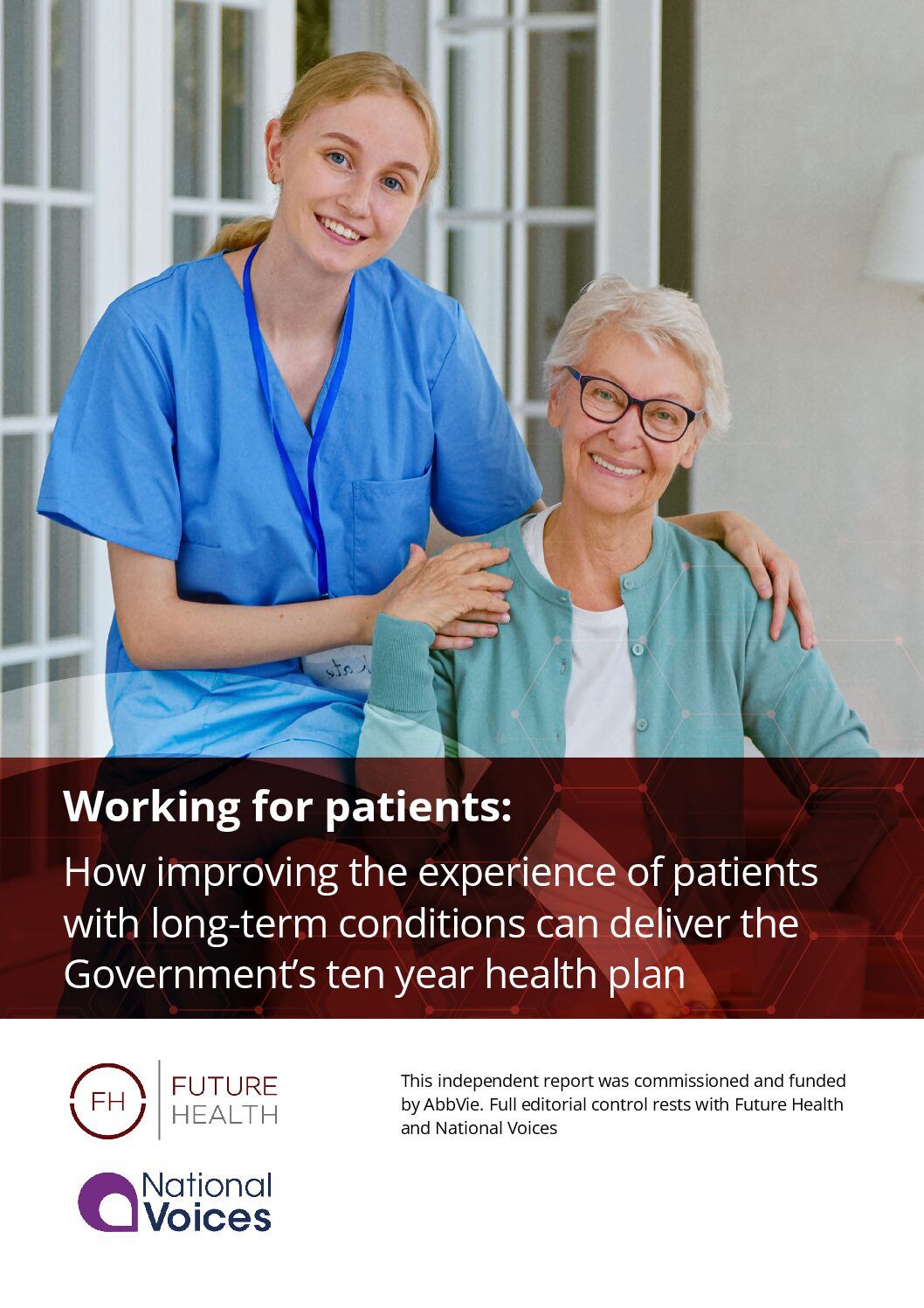
Working for patients: How improving the experience of patients with long-term conditions can deliver the Government’s ten year health plan
- What We Need Now
- I statements
- Communication and administration
- Integrated care
- Person-centred care
- COVID-19
- Digital health and care
- Lived experience
- Health inequalities
- Hospital waiting lists
The report details that 25 million people in England are currently estimated to be living with a long-term condition and 13.4 million of these have two or more. People with long-term conditions also account for 50% of GP appointments and 70% of hospital beds.
Through our research, we have determined that measuring the experience of patients and acting on what they say has been de-prioritised in recent years with far greater emphasis placed on improving access to services and waiting times for treatment. As a result, measures surrounding the experience of patients with long-term conditions has declined, with millions of people not receiving the care and support they need alongside little collected insight into how to improve this. This is despite there being extensive evidence that improving patient experience can improve the quality of care and reduce more expensive healthcare use.
The report emphasises that nationally up to 5.5 million people do not feel confident to manage issues caused by their illness or condition, and a further third of patients sharing that they had not had enough support from local services in helping them manage their condition.
The number of people saying that they have not had enough support from local services to help them manage their condition has also risen by over 10 percentage points in the last five years from 21.6% in 2019 to 32.2% in 2024.
The report argues that understanding if patients with long-term conditions feel supported to manage their condition will be integral to assessing whether the three shifts in the Government’s Ten Year Health Plan are working in practice. Patients must feel able to access the care in the community they need, are supported to prevent health complications arising, , and can use quality digital services or offered an alternative if not.
A clear four-part action plan for prioritising the experience of patients with long-term conditions, set out in the report, is:
- Audit the array of existing and fragmented patient surveys
- Build new patient experience metrics for monitoring how the Government’s three shifts are working in practice
- Improve national and local accountability for measuring and improving patient experience
- Use new digital and data tools to improve how data is collected, monitored, and acted upon.
This independent report was commissioned and funded by AbbVie. Full editorial control rests with Future Health and National Voices.